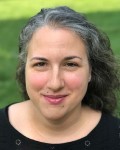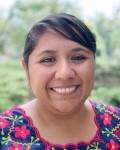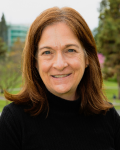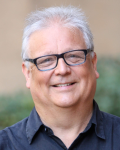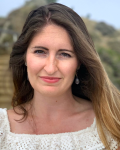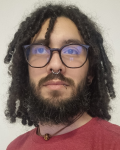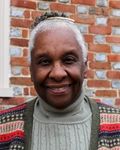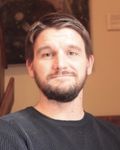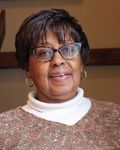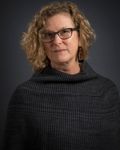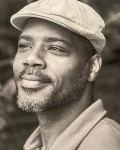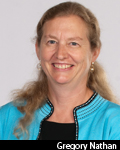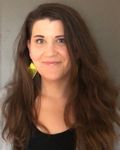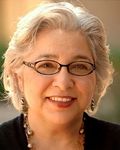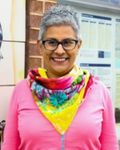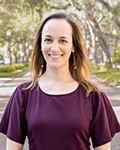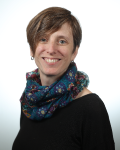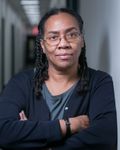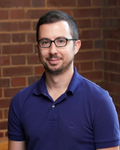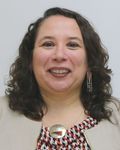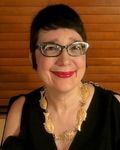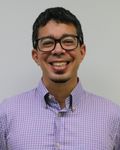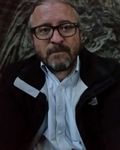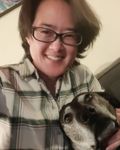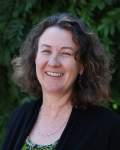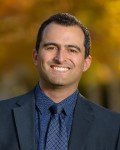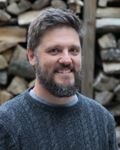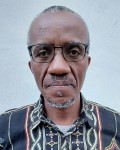ACLS Digital Justice Development Grants
Archiving Out of the Box: Supporting Community Ownership of Shared Narratives through a Digital Archiving and Storytelling Kit
The Archiving Out of the Box project supports communities who are excluded from the historical record. The project team, including community partners from Indiana and Ohio, will collaborate on a non-custodial archiving-workflow toolkit with three new affordances. First, it requires minimal to no institutional involvement. Second, it emphasizes minimal computing and minimal cost. Finally, it is a start-to-finish approach that includes relationship building, community collection, post-production, and post-archive impact guides. In addition to the publication of two community digital archives using the toolkit, the team will distribute the Archiving Out of the Box toolkit for open peer-review and ultimately, for wider public use.
Principal Project Team:
Assessing Surveillance Efficacy and Fostering Visions for Community Safety for Social Justice in Detroit, MI
The Safety Ain’t Surveillance Coalition is a city-wide organization seeking to build non-punitive ways to build safety across our city, without continued reliance on surveillance technologies that strip Detroiters of their privacy while criminalizing Black neighborhoods and people. The research work will involve collaborating with community members to address the current divide between digital justice, racial injustice, and public safety. We are carrying out this work by building critical perspectives that inform the protection of rights to privacy in the nation's largest majority-Black city through collaborative analysis, the development of a layered interactive digital map, and corresponding oral histories of Detroiters addressing digital justice, racial injustice, and public safety.
Principal Project Team:
Building the Environmental Injustice Global Record, Connecting Researchers, Teachers and Environmental Justice Advocates
The proposed work will strengthen the workflows, technical infrastructure and community of practice building the Environmental Injustice Global Record, an expansive digital archive and collaboration space designed to address environmental injustice in settings around the world. Using open source digital infrastructure, collaborating researchers build digital collections, collaboratively analyze data, and publish in diverse, multimodal forms. The EiJ Global Record links academic researchers (including students), teachers (in K-12, university and community settings), and environmental justice advocates. The work is motivated by commitments to community-engaged research, (decolonized) open science, open source software, and innovative forms of scholarly communication.
Principal Project Team:
Chesapeake Heartland: An African American Humanities Project (Washington College): Digital Justice Fellow, Community Historians, and Digital Archivist/Historian
Chesapeake Heartland: An African American Humanities Project is a collaboration among Washington College, the National Museum of African American History and Culture, and a network of grassroots partners/subgrantees on the rural Eastern Shore of Maryland, as well as several archival institutions. We are developing a model of digital public history in which traditionally marginalized rural Black communities collect, share, and interpret their own histories in collaboration with academic historians/archivists. An interactive website shares thousands of family photos, home movies, oral histories, etc. along with material from institutional archives. We seek salary support and travel funds for two Community Historians, a Digital Archivist, and a new Digital Justice Public History Fellowship.
Principal Project Team:
Freedom & Captivity Archive Project: Archiving Carceral Experience
Freedom & Captivity will build a digital archive of carceral experience - the hidden stories of Maine’s incarcerated community members - and perform that archive at venues across the state. The curated archive will be housed at the Maine Memory Network, Maine Historical Society’s digital history platform, and all the material collected for the project will be archived in Colby College Library’s Digital Collections. This will be the first archival space in Maine to hold stories about incarceration, curated and sensitively contextualized by those most impacted by carcerality. By offering a platform for the voices of those previously silenced by carcerality, our project aims to shift the narrative around justice, accountability, and the need for incarceration in the wake of harm.
Principal Project Team:
Honoring Indigenous Community Knowledge: Expanding the Genoa Indian School Digital Reconciliation Project Beyond the Government Archive
The Genoa Indian School Digital Reconciliation Project seeks an ACLS Digital Justice Development Grant in the amount of $98,327 for an 18-month project titled, “Honoring Indigenous Community Knowledge: Expanding the Genoa Indian School Digital Reconciliation Project Beyond the Government Archive.” To date, the Genoa Project has published nearly 3,000 government records, with work underway to publish several thousand additional documents. Building from this work, we request funding to begin a next major phase of our work, supporting descendant communities in telling more complete stories of Genoa through the development of a digital oral history and community knowledge program.
Principal Project Team:
La cultura cura: Digital Equity and Justice for Mexican American Art Since 1848
The University of Minnesota, University of Texas Rio Grande Valley, National Museum of Mexican Art (Chicago), and Mexic-Arte Museum (Austin) propose an 18-month collaboration to ready publication of 8,100+ items on the museums’ websites and open-source tool, Mexican American Art Since 1848, that progressively links US libraries, archives, and museums. We propose to 1) enhance and implement the Protocol for Partnering with Small-Budget Cultural Institutions; 2) test digitization workflows for various media; 3) develop cataloging practices to support dissemination of these museums’ knowledge; 4) with students, increase community engagement with the portal and scale-up overtime; and 5) enrich sustainability plans. Our work empowers Mexican American cultural institutions and artistic heritage.
Principal Project Team:
Reanimating African American Oral Histories of the Gulf South: Enhancing Public Engagement
Reanimating African American Oral Histories of the Gulf South: Enhancing Public Engagement will further develop an open-access, easy-to-use, web-based interface that provides users with resources to enhance student and community engagement with the oral histories and learning modules centered on spoken African American Language. We will expand the project’s impact by going beyond the normal scope of university public engagement and being guided by community feedback and expressed needs. We will respond directly to the needs of a specific marginalized and neglected community by continuing to engage with the Black community within Putnam County, Florida. We will focus our efforts on the oral history of students who attended the first Black schools in Florida before integration.
Principal Project Team:
Recovering, Indexing and Digitizing Missing Northeast Slavery Records
This grant will extend the ability of the Northeast Slavery Records Index (NESRI) project to find and present missing digital records of enslavement in eight northeastern states. NESRI ( http://nesri.us) now includes more than 64,000 records accessible to all through free online community-focused reports. Records were legally required to document many births, ownership transfers, and manumissions, and their maintenance is legally required today. Many records are missing from the public historical record because custodians may not understand their meaning or location. The grant would train, supervise and support at least 14 research partners to pursue these records and, thus, further the understanding of the extent and conditions that enslaved people endured throughout the region.
Principal Project Team:
Recruiting and Training the Next Generation of Slave Societies Digital Archive (SSDA) Scholars
The Slave Societies Digital Archive holds the oldest and most extensive serial records for African and indigenous people and their descendants in the Atlantic World. This grant will fund development of machine learning to enhance access to centuries of under-utilized or understudied records for the history of Black, Latinx, and Indigenous communities stored in SSDA. SSDA will recruit and train minority students from Fisk University,Tennessee State University, and Middle Tennessee State University to work on SSDA's machine-learning initiative, transcribe historic documents and develop digital projects related to their research interests. Fellows will present their research projects at a concluding conference attended by leading figures in the field.
Principal Project Team:
Speaking into Silences: Building Community Archives across the Puerto Rican Archipelago
Leveraging the resources of the Oral History Lab @UPRM—and the experience of its interdisciplinary leadership team—the proposed project facilitates the development of community-led oral history for social justice projects from inception to dissemination: tailoring technology kits, digital archives, and multimodal outputs to the specific needs and assets of four community partner sites across the Puerto Rican archipelago. Moving centers of knowledge production from the academy to the community, this project develops post-custodial community archives that remain onsite for direct access by community members, while making stories of surviving stratified disasters (and the experiential knowledges they hold) widely available through mirror collections housed at the Lab.
Principal Project Team:
The arqive: An LGBTQ Digital Storytelling Map
The arqive is an LGBTQ (Lesbian, Gay, Bisexual, Trans, Queer) digital storytelling map. It is an interactive repository of geographically and temporally located LGBTQ events and stories that presents narratives of LGBTQ history around the world, foregrounding principles of social justice, diversity, and inclusion through humanities perspectives. We are requesting support to build out the next phases of development: 1) continued technical development of the platform with additional UX/UI features such as gamification and AR; 2) content creation and research through collaborations with researchers, graduate assistants, and other institutions; and 3) outreach to community partners, sponsors, and the public to increase visibility and accessibility of this site and generate more user activity.
Principal Project Team:
The Nevada Racist Covenants Research and Redaction Project
The project documents housing discrimination in Nevada and how communities of color have nevertheless persisted. It will create a website and smartphone application using mapping, filmed oral histories, archival research, and historical narration. Pursuant to state law, it researches racist covenants, notifies homeowners, and uses local courts and county recorders to redact racist covenants. This project will answer: how was America’s racist housing system created from the “bottom-up,” that is, through the coordinated actions of thousands of government decision-makers and real estate professionals? What present-day legacies remain? Technological advances such as digitization of deeds make it now possible to document and interpret racist covenants for scholarly and general audiences.
Principal Project Team:
The Personal Writes the Political: Securely Rendering Black Lives Legible Through the Application of Advanced Machine Learning (ML) to Anti-Apartheid Solidarity Letters
The Personal Writes the Political (PWP) is a digital humanities project that applies advanced machine learning (ML) models to anti-apartheid solidarity letters predominantly authored by Black South African women. We created a software pipeline called Careful Recall (Caracal) which automates the transcription of handwritten materials into machine readable text and conducts named entity recognition to distinguish between private identifying information from relevant research data in highly sensitive handwritten archives. We will use Caracal to extract modest datasets from selections of thematically united letters we call focal clusters. In addition we will conduct skills transfer to this collections' home archive, the Mayibuye Centre Archive.



